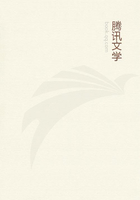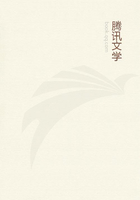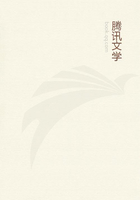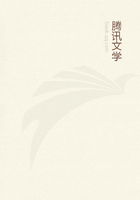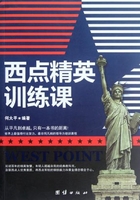She who is poor is sure, in the end, to be scorned by her husband;And will as servant be held, who as servant came in with her bundle.
Men will remain unjust when the season of love is gone over.
Yes, my Hermann, thy father's old age thou greatly canst gladden, If thou a daughter-in-law will speedily bring to my dwelling, Out of the neighborhood here,--from the house over yonder, the green one.
Rich is the man, I can tel1 thee. His manufactures and traffic Daily are making him richer; for whence draws the merchant not profit?
Three daughters only he has, to divide his fortune among them.
True that the eldest already is taken; but there is the second Still to be had, as well as the third; and not long so, it may be.
I would never have lingered till now, had I been in thy place;But had fetched one of the maidens, as once I bore off thy dear mother."Modestly then did the son to the urgent father answer;"Truly 'twas my wish too, as well as thine own, to have chosen One of our neighbor's daughters, for we had been brought up together;Played, in the early days, about the market-place fountain;And, from the other boys' rudeness, I often have been their defender.
That, though, is long since past: the girls, as they grew to be older, Properly stayed in the house, and shunned the more boisterous pastimes.
Well brought up are they, surely! I used sometimes to go over, Partly to gratify thee, and because of our former acquaintance:
But no pleasure I ever could take in being among them;For I was always obliged to endure their censures upon me.
Quite too long was my coat, the cloth too coarse, and the color Quite too common; my hair was not cropped, as it should be, and frizzled.
I was resolved, at last, that I, also, would dress myself finely, Just as those office-boys do who always are seen there on Sundays, Wearing in summer their half-silken flaps, that dangled about them;But I discovered, betimes, they made ever a laughing-stock of me.
And I was vexed when I saw it,--it wounded my pride; but more deeply Felt I aggrieved that they the good-will should so far misinterpret That in my heart I bore them,--especially Minna the youngest.
It was on Easter-day that last I went over to see them;Wearing my best new coat, that is now hanging up in the closet, And having frizzled my hair, like that of the other young fellows.
Soon as I entered, they tittered; but that not at me, as I fancied.
Minna before the piano was seated; the father was present, Hearing his daughters sing, and full of delight and good-humor.
Much I could not understand of all that was said in the singing;But of Pamina I often heard, and oft of Tamino:
And I, besides, could not stay there dumb; so, as soon as she ended, Something about the words I asked, and about the two persons.
Thereupon all were silent and smiled; but the father made answer:
'Thou knowest no one, my friend, I believe, but Adam and Eve?'
No one restrained himself longer, but loud laughed out then the maidens, Loud laughed out the boys, the old man held his sides for his laughing.
I, in embarrassment, dropped my hat, and the giggling continued, On and on and on, for all they kept playing and singing.
Back to the house here I hurried, o'ercome with shame and vexation, Hung up my coat in the closet, and pulled out the curls with my fingers, Swearing that never again my foot should cross over that threshold.
And I was perfectly right; for vain are the maidens, and heartless.
E'en to this day, as I hear, I am called by them ever 'Tamino.'"Thereupon answered the mother, and said: "Thou shouldest not, Hermann, Be so long vexed with the children: indeed, they are all of them children.
Minna, believe me, is good, and was always disposed to thee kindly.
'Twas not long since she was asking about thee. Let her be thy chosen!"Thoughtfully answered the son: "I know not. That mortification Stamped itself in me so deeply, I never could bear to behold her Seated before the piano or listen again to her singing."Forth broke the father then, and in words of anger made answer:
"Little of joy will my life have in thee! I said it would be so When I perceived that thy pleasure was solely in horses and farming:
Work which a servant, indeed, performs for an opulent master, That thou doest; the father meanwhile must his son be deprived of, Who should appear as his pride, in the sight of the rest of the townsmen.
Early with empty hopes thy mother was wont to deceive me, When in the school thy studies, thy reading and writing, would never As with the others succeed, but thy seat would he always the lowest.
That comes about, forsooth, when a youth has no feeling of honor Dwelling within his breast, nor the wish to raise himself higher.
Had but my father so cared for me as thou hast been cared for;If he had sent me to school, and provided me thus with instructors, I should be other, I trow, than host of the Golden Lion!"Then the son rose from his seat and noiselessly moved to the doorway, Slowly, and speaking no word. The father, however; in passion After him called, "Yes, go, thou obstinate fellow! I know thee!
Go and look after the business henceforth, that I have not to chide thee;But do thou nowise imagine that ever a peasant-born maiden Thou for a daughter-in-law shalt bring into my dwelling, the hussy!
Long have I lived in the world, and know how mankind should be dealt with;Know how to entertain ladies and gentlemen so that contented They shall depart from my house, and strangers agreeably can flatter.
Yet I'm resolved that some day I one will have for a daughter, Who shall requite me in kind and sweeten my manifold labors;Who the piano shall play to me, too; so that there shall with pleasure All the handsomest people in town and the finest assemble, As they on Sundays do now in the house of our neighbor." Here Hermann Softly pressed on the latch, and so went out from the chamber.


